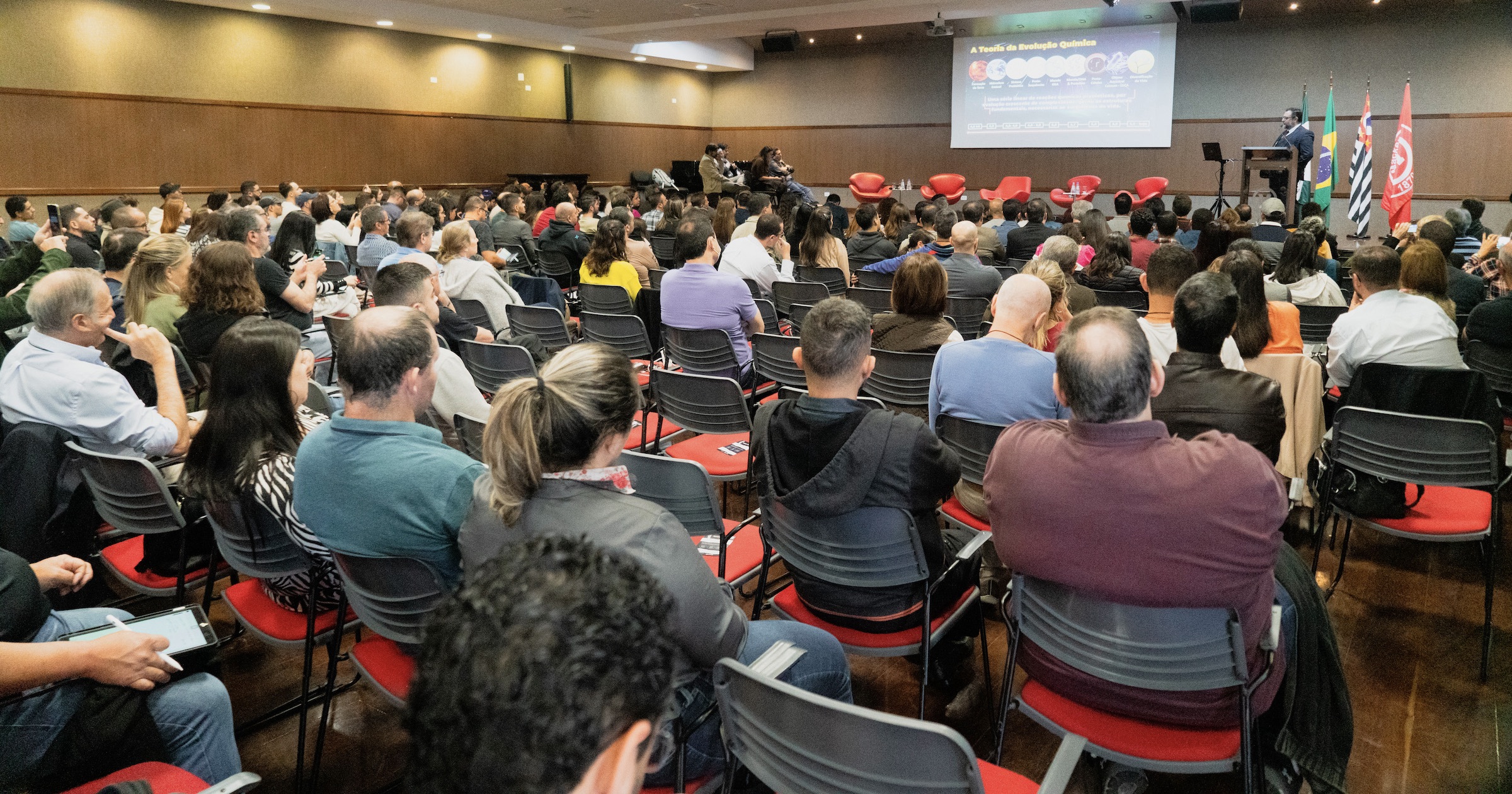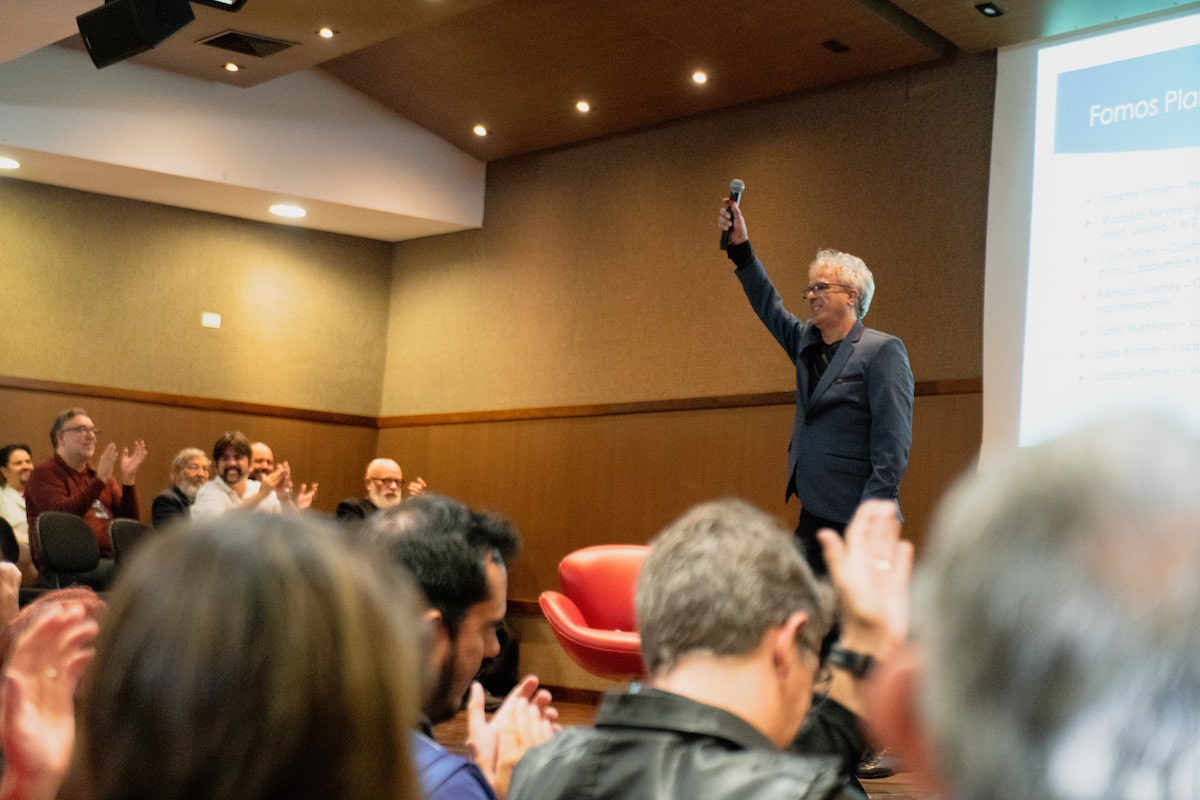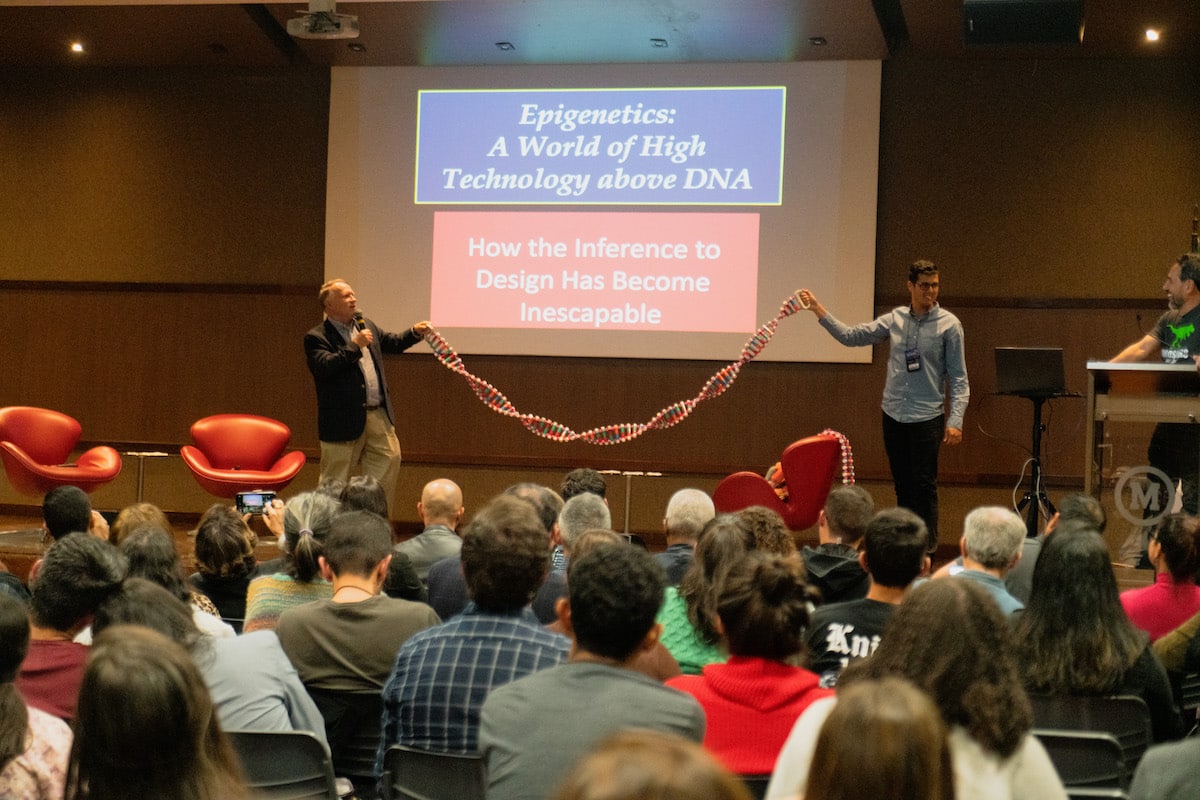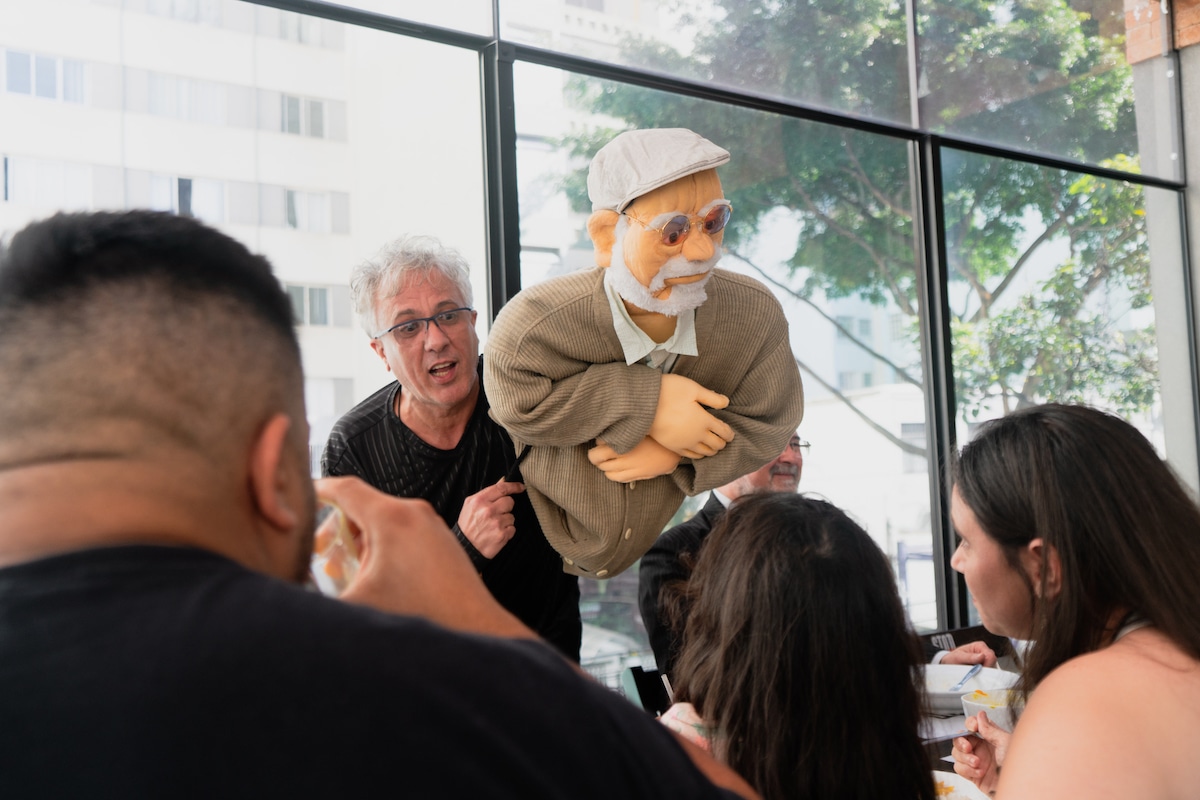 Evolution
Evolution
 Intelligent Design
Intelligent Design
Postcard from São Paulo: Intelligent Design Sung to a New Tune in Brazil

My wife Emily and I are on our way home from the 4th Annual TDI Brazil Conference, organized by the Brazilian Society of Intelligent Design in São Paulo. The theme of the conference was familiar to us, but I’d like to think that we’ve heard it sung to a new tune in more ways than one.
In the most literal sense, the conference opened each day with a live performance of “Fomos Planejados” (“We Were Planned,” in English) — an original song about intelligent design written by Brazilian singer/songwriter Heleno Hauer. Heleno’s cheerful and animated delivery elicited lots of clapping, smiles, and laughter.
In the song, Heleno creates a beautiful arc from the meaninglessness of “burras forças naturais,” “acaso,” and “evolução” (unintelligent natural forces, chance, and evolution) to the meaning and beauty derived from our observation of “antevidência,” “intensão e amor,” and “design inteligente” (foresight, intention and love, and intelligent design). He cites the “ajuste muito fino” (fine-tuning), “bilhares de bytes de informação” (billions of bytes of information), and “motores nanométricos” (molecular machines) that were discovered when “caixa preta de uma célula se abriu” (the cell’s “black box” was opened) and argues that these all scream the evidence of a “Bom Planejador” (“Good Planner”) and “Designer Inteligente” (Intelligent Designer).
Quite literally, we heard intelligent design sung to a new and cheerful tune.

A Weave of Languages
In a more figurative sense, this was the first conference on intelligent design that we’ve attended where sessions were delivered in three different languages — Portuguese, Spanish, and English. While we are only somewhat familiar with Spanish and completely illiterate in Portuguese, it was beautiful to hear familiar terms like “diseño inteligente,” “complexidade,” and “sofisticação” woven throughout the talks.
In addition to myself and Emily, international presenters included Spanish doctor Antonio Martinez, who had previously helped to salvage an ID conference canceled by critics in Portugal, CSC Senior Fellow Tom Woodward, author of Doubts about Darwin: A Rhetorical History of Intelligent Design, and Argentine philosopher Juan Manuel Torres, who has written extensively on ID’s validity as a scientific theory. Dr. Torres’s presentation on the opening day of the conference demonstrated the testability, falsifiability, fruitfulness, and predictive power of the theory of intelligent design, setting the stage for a wide variety of talks on the “teoria do design inteligente” (or “TDI”) throughout the weekend event.

Challenging Materialism
Brazilian presenters included notable chemists (like Marcos Eberlin), biologists (Mariana Sá, Michelson Borges), physicists (Adauto Lourenço, Kelson Mota), neuroscientists (Ricardo Marques), and historians and philosophers of science (Enézio de Almeida Filho), to name a few. Their talks challenged the mainstream materialistic views of the origin of the universe, the origin of life, and the evolution of complex life, and presented alternative explanations derived from the ID framework. Many talks addressed the very latest findings and discussions in their fields, including the implications of the most recent James Webb Telescope imaging, the challenging questions arising from the field of epigenetics, and the contradictory scenarios required by current origin-of-life hypotheses.
In another sense, it was encouraging to see that the “tune” of intelligent design at this particular conference was straight-shooting and good-natured at the same time. The opening debate featured outspoken ID proponent Marcos Eberlin (member of the Brazilian Academy of Sciences and President of the Brazilian Society for Intelligent Design) and well-known ID critic Luiz Felipe Pondé (an esteemed Brazilian philosopher and self-described atheist). While Pondé is a skeptic of intelligent design, he is equally critical of materialistic atheism, and thus open to a convivial debate on the question of “E se Deus Existir, o que Muda?” (roughly, “If God Exists, What Changes?”).
Impassioned Yet Good-Spirited
While it was no doubt an impassioned debate, I was struck by the frequent and good-spirited laughter shared by both the panelists and attendees. Despite the language barrier (to myself), I could sense the mutual respect shared by the panelists and was encouraged to see this seemingly rare and collegial approach to scientific and philosophical dialogue. What little I did understand of the debate sounded familiar, though…arguments about the evolvability of proteins, citing the work of Douglas Axe, questions about the existence of evil, and other common points of contention.
Speaking of Douglas Axe, it was fascinating to witness just how familiar this audience was with the work of early ID theorists like Philip Johnson, Michael Behe, Stephen Meyer, Jonathan Wells, Ann Gauger, and Bill Dembski, just to list a few names that I heard mentioned throughout the weekend. In many cases, they were spoken of as “intellectual heroes” and “scientific icons” in the eyes of the Brazilian ID movement. We were entertained to the point of tears when a life-sized Muppet-lookalike of Michael Behe made an appearance, taking pictures with delighted attendees and speaking of “complexidade irredutível,” “motores nanométricos,” and the “flagelo bacteriano.”

Regardless of the new tune, though, we were simply impressed by the enthusiasm and caliber of ID supporters in this part of the world, and the effective outreach being accomplished through professional educational kits for kids (offered by “ID Bird”), specialty college courses for young adults (at Mackenzie Presbyterian University in São Paulo), popular podcasts for adults (including a recent record-breaking 10-hour live debate with three evolutionary theorists), and many opportunities to connect with other supporters through this annual conference, social media, and other outreach initiatives.
In many ways, Brazil has become a role model for the global ID movement. Thank you to Marcos Eberlin, and the entire team at TDI Brazil, for inviting us to speak at this year’s conference!
